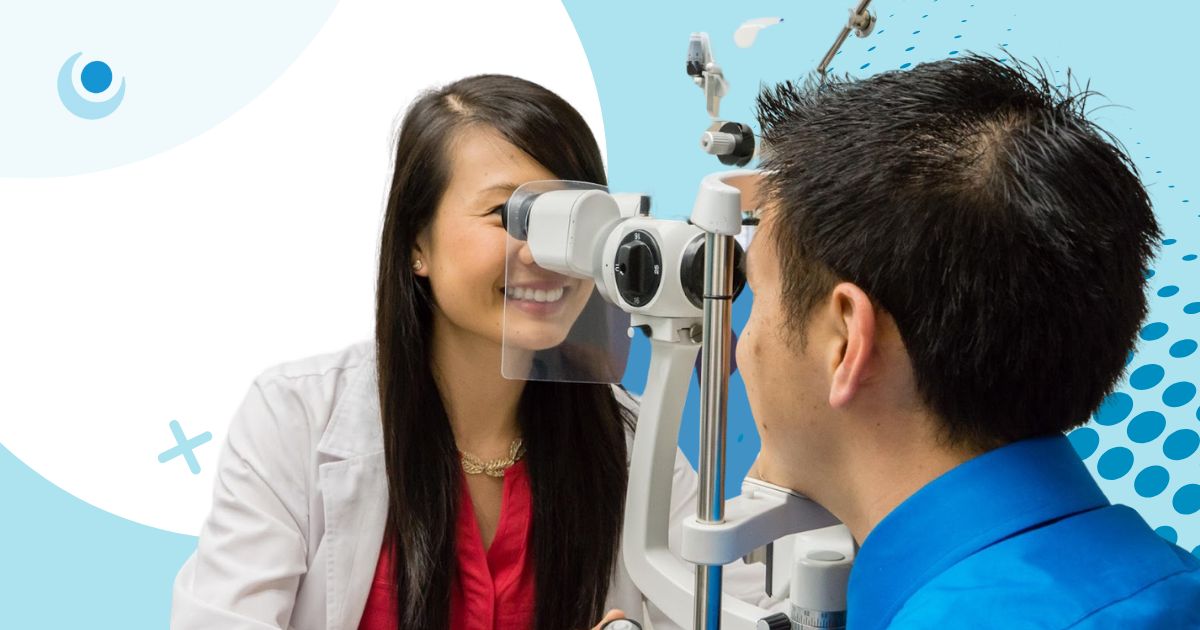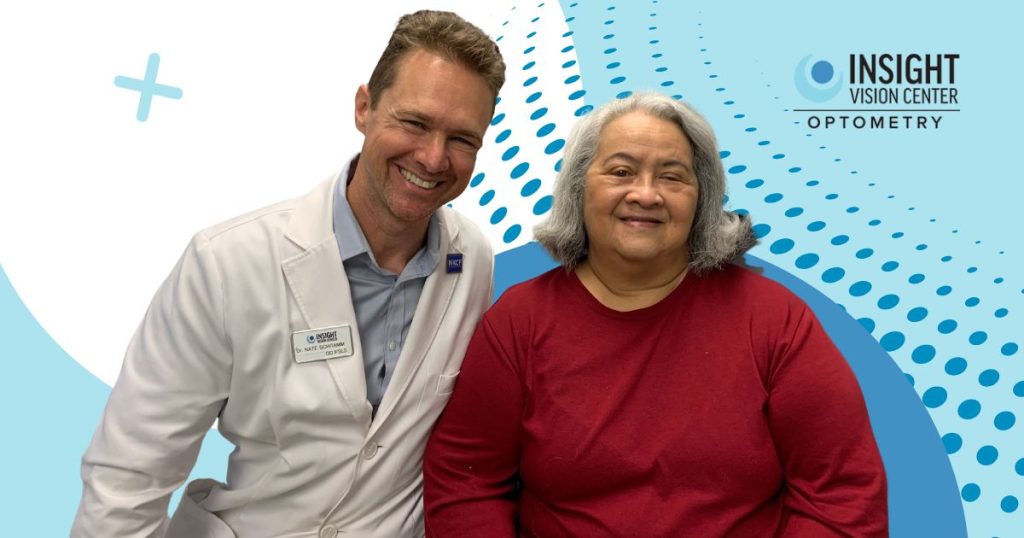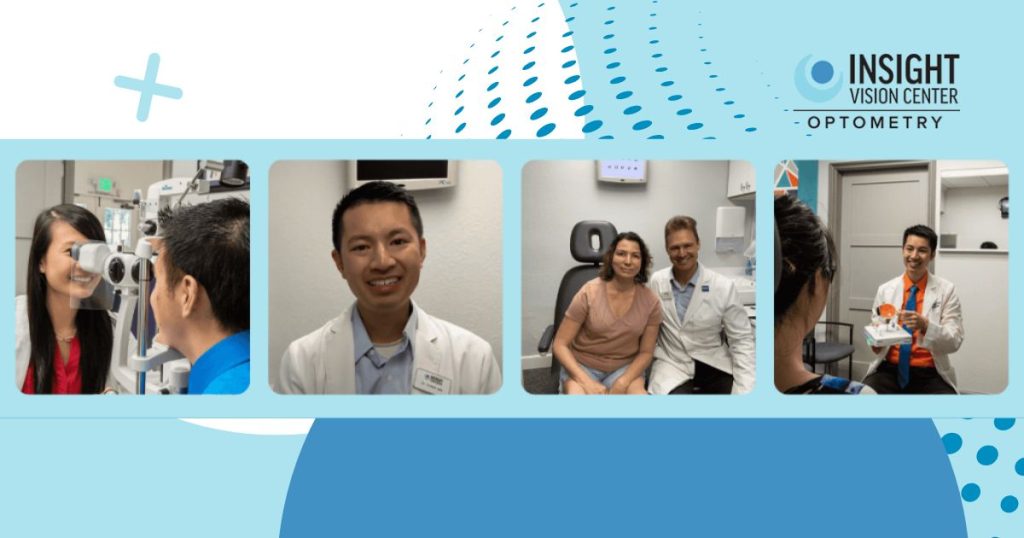
The Highest Rated Specialty Eye Care Center In Orange County

What Our Patients are Saying
“Dr. Mai and the entire personnel are amazing! Extremely polite, kind and professional. In addition, I can now see 20/20!!! Thank you, thank you all. 🤗🤗””
⭐⭐⭐⭐⭐
Franchezka
“Dr Mai and his team are awesome. They’re the best doing tests because, have the ultimate equipment with the last technology. And their customer service is unique “
⭐⭐⭐⭐⭐
Rene J.
Whether you’re dealing with this issue yourself or concerned about a family member, this comprehensive guide will help you navigate the causes, symptoms, treatments, and prevention strategies for swollen eyelids.
What Are Swollen Eyelids?
Swollen eyelids occur when there’s a buildup of fluid or inflammation in the connective tissue surrounding your eyes. This condition can affect your upper eyelid, lower eyelid, or both. The severity can range from mild puffiness to significant swelling that impacts your vision.
While it might seem alarming, most cases are treatable and often resolve with simple home remedies or medical interventions. It’s important to understand that swollen eyelids can be a symptom of various underlying conditions, ranging from minor irritations to more serious health issues.
Key Statistics
Did you know that eyelid-related issues are more common than you might think? Here are some eye-opening facts:
- Eyelid dermatitis affects 1-3% of adults, with 15% of dermatitis cases involving the eyelids.
- Eye allergies impact up to 40% of adults, making it a significant cause of eye discomfort.
- Blepharitis, an inflammation of the eyelids, affects up to 25% of patients seen by eye care professionals.
- Styes, those painful bumps near the eyelash line, are experienced by about 5-10% of people at some point in their lives.
- Chalazia, similar to styes but usually painless, occur in 0.24-0.41% of the population.
When to See Us: Red Flags for Immediate Attention
While many cases of swollen eyelids can be managed at home, certain symptoms warrant immediate medical attention. As your eye care provider, we want to ensure that any potentially serious conditions are addressed promptly.
- Persistent Symptoms: If your symptoms persist for more than 48 hours despite home care, it’s time to give us a call. Persistent swelling may indicate an underlying condition that requires medical treatment.
- Vision Changes: Any noticeable changes in your vision, such as blurriness, double vision, or loss of peripheral vision, should be evaluated immediately. These could signify more severe issues, such as orbital cellulitis or complications from an infection.
- Severe Pain or Discomfort: While some discomfort is expected with swollen eyelids, severe pain is a red flag. Significant pain often signals a more serious infection or condition that may require prescription medication or, in rare cases, surgical intervention.
Insight Vision Center Optometry in Costa Mesa is a trusted pediatric vision clinic, with families referred to us from all over Orange County, including nearby cities like Irvine, Huntington Beach, and Santa Ana.
Signs of Infection
If you notice discharge, especially if it’s thick or colored, or if you develop a fever along with your eye symptoms, please contact us right away. These signs point to potential bacterial infections such as conjunctivitis or preseptal cellulitis, which require prompt treatment.
- Difficulty Moving the Eye: Restricted eye movement is a serious symptom that requires immediate attention. It could be a sign of orbital cellulitis, a condition that can lead to vision loss if not treated promptly.
- One-Sided Swelling: While many conditions affect both eyes, swelling limited to one eye could indicate a localized issue, such as a stye, chalazion, or trauma. It’s worth getting checked out to ensure proper treatment.

Eye Swelling Emergency? Our Eye Doctors Are Ready to Help
Our emergency care team, led by Dr. Nathan Schramm, Dr. Ariel Chen, Dr. Valerie Lam, and Dr. Nhi Nguyen, is ready to handle any urgent eye swelling situation. Whether you’re experiencing sudden eye swelling or related discomfort, their advanced expertise and compassionate approach ensure that you receive the immediate care you need.
Recognizing the Symptoms
Swollen eyelids can present with a variety of symptoms. Being aware of these signs can help you identify the issue early and seek appropriate care when needed.
- Visible Swelling or Puffiness: The most obvious sign is, of course, swelling. This can range from mild enlargement to severe swelling that obstructs vision. You might notice that your eyelids appear larger than usual or feel heavier.
- Itching or Scratchy Sensation: Many patients report an itchy or scratchy feeling in their eyes when experiencing swollen eyelids. This is often a sign of an allergic reaction or irritation. While it’s tempting to rub your eyes for relief, try to resist as this can worsen the swelling and potentially introduce harmful bacteria.
- Redness and Inflammation: Swollen eyelids are often accompanied by redness of the eyelid and/or eye. This redness can range from a slight pink tinge to a bright red hue, indicating inflammation or infection.
- Watery Eyes and Discharge: Excessive tear production is a common response to eye irritation. You might find your eyes watering more than usual. In some cases, you may also notice discharge, which can range from clear and watery to thick and yellowish. The nature of the discharge can provide clues about the underlying cause.
- Light Sensitivity and Vision Changes: Some patients experience discomfort or pain in bright light or sunlight when dealing with swollen eyelids. This photophobia can be accompanied by changes in vision, such as blurriness or partial obstruction, especially if the swelling is severe.
- Pain and Discomfort: The level of discomfort can vary greatly. Some people experience mild irritation, while others report significant pain, especially when moving their eyes or touching the affected area.
Other Symptoms
You might also notice dryness or flaking of the eyelids, a feeling of something being stuck in your eye (known as foreign body sensation), or difficulty fully opening or closing your eye due to the swelling.
Remember, these symptoms can affect one or both eyes and can range from mild to severe. The specific combination of symptoms often provides clues about the underlying cause, which is crucial for determining the appropriate treatment.
Common Causes of Swollen Eyelids

- Allergies: Allergic reactions are a frequent cause of swollen eyelids. When allergens like pollen, dust, or pet dander come into contact with your eyes, your body releases histamines, leading to inflammation and swelling. Seasonal allergies can make this a recurring issue for many patients.
- Eye Infections: Various infections can cause eyelid swelling. Conjunctivitis, commonly known as pink eye, is a frequent offender. Other infections include blepharitis (inflammation of the eyelid margins), styes (infected oil glands near the eyelashes), and chalazia (blocked oil glands within the eyelid).
- Trauma or Injury: Accidents happen, and sometimes they involve our eyes. Blunt force to the eye area, even something as simple as rubbing your eyes too vigorously, can cause swelling. It’s the body’s natural response to protect the delicate eye structures.
- Contact Lens Issues: For our patients who wear contact lenses, improper lens care or sensitivity to lens solutions can lead to eye irritation and swelling. Wearing lenses for too long or using damaged lenses can also contribute to this problem.
- Systemic Conditions: Sometimes, swollen eyelids are a symptom of a larger health issue. Thyroid disorders, particularly Graves’ disease, can cause eye swelling. Other conditions like cellulitis (a bacterial skin infection) or certain autoimmune disorders can also manifest with eyelid swelling.
- Fluid Retention: Factors that cause general fluid retention in the body, such as high salt intake, hormonal changes, or certain medications, can lead to puffiness around the eyes. This is often most noticeable upon waking in the morning.
- Cosmetic Reactions: Sensitivity to makeup, especially eye makeup, or skincare products can trigger swelling. This can be due to an allergic reaction or irritation from the product’s ingredients.
- Insect Bites: The thin, sensitive skin around your eyes makes this area particularly susceptible to insect bites. A mosquito bite near your eye can cause noticeable swelling.
- Environmental Factors: Exposure to irritants like smoke, strong fumes, or chlorinated pool water can lead to eye irritation and swelling. Even excessive crying can cause temporary eyelid puffiness.
- Age-Related Changes: As we age, the tissues around our eyes become less elastic, which can lead to fluid accumulation and a puffy appearance. This is a natural part of the aging process but can be exacerbated by lifestyle factors.
Understanding these potential causes can help you identify and address the root of your eye swelling. However, remember that accurate diagnosis often requires a professional evaluation, especially if symptoms persist or worsen.
Diagnosis and Treatment
When you visit us with swollen eyelids, we’ll conduct a thorough examination to determine the underlying cause and recommend the most appropriate treatment. Insight Vision Center Optometry provides emergency eye care to Costa Mesa and the surrounding areas, including Irvine, Huntington Beach, and Santa Ana.
Here’s what you can expect:
Comprehensive Eye Exam
We’ll start with a detailed examination of your eyes and eyelids. This may include using a slit lamp, which allows us to view the structures of your eye under magnification. We’ll look for signs of infection, inflammation, or structural issues.
Medical History Review
We’ll start with a detailed examination of your eyes and eyelids. This may include using a slit lamp, which allows us to view the structures of your eye under magnification. We’ll look for signs of infection, inflammation, or structural issues.
Symptom Evaluation
We’ll ask about the nature and duration of your symptoms. Details like whether one or both eyes are affected, any associated pain or vision changes, and what seems to improve or worsen the swelling are all important clues.
Additional Tests
Depending on our initial findings, we might recommend additional tests. These could include allergy tests, tear film analysis, or in some cases, imaging studies to rule out more serious conditions.
Treatment Options
Based on our diagnosis, we’ll recommend a treatment plan tailored to your specific situation.
For mild cases caused by allergies or minor irritation:
Home remedies:
- Apply a cool compress to the eyes for 10-15 minutes several times a day
- Use artificial tears or saline solution to rinse the eyes
- Remove contact lenses until swelling subsides
- Elevate the head while sleeping to reduce fluid retention
- Take over-the-counter oral antihistamines for allergy-related swelling
- Place chilled tea bags or cucumber slices on closed eyes to reduce puffiness
Medical Treatments:
- Prescription antihistamine eye drops for allergies
- Antibiotic eye drops or ointment for bacterial infections
- Antiviral medication for herpes infections
- Steroid eye drops for severe allergic reactions or inflammation
- Surgical drainage may be needed for severe infections or abscesses
For more serious cases:
Oral antibiotics for cellulitis or other bacterial infections
Treatment of underlying medical conditions like thyroid disease
Referral to specialists if needed for systemic conditions
Prevention: Keeping Your Eyes Healthy
While we can’t prevent all cases of swollen eyelids, there are many steps you can take to reduce your risk and maintain overall eye health:

- Practice Good Hygiene: Proper hygiene is crucial, especially for contact lens wearers. Always wash your hands before touching your eyes or handling lenses. Clean and store lenses according to instructions, and replace them and their cases as recommended.
- Remove Eye Makeup Before Bed: Sleeping with eye makeup can lead to irritation and clogged oil glands. Use a gentle, hypoallergenic makeup remover to cleanse your eyelids thoroughly every night.
- Use Hypoallergenic Products: If you have sensitive skin or eyes, opt for hypoallergenic and fragrance-free cosmetics and skincare products. Consider patch-testing new products before applying them near your eyes.
- Protect Your Eyes: Wear protective eyewear when engaging in activities that might expose your eyes to debris, chemicals, or strong winds. This includes swimming in chlorinated pools, which can be irritating to the eyes.
- Manage Allergies: If you suffer from allergies, work with your healthcare provider to manage them effectively. This might include identifying triggers, using air purifiers, and taking appropriate medications.
- Stay Hydrated and Maintain a Healthy Diet: Proper hydration and a balanced diet rich in vitamins A, C, and E can support overall eye health. Omega-3 fatty acids, found in fish and flaxseeds, are particularly beneficial for eye health.
- Get Adequate Sleep: Lack of sleep can contribute to fluid retention and eye puffiness. Aim for 7-9 hours of quality sleep each night, and consider elevating your head slightly to reduce fluid accumulation around the eyes.
- Avoid Rubbing Your Eyes: Resist the urge to rub your eyes, as this can introduce irritants and bacteria, and potentially worsen swelling. If your eyes are itchy, try gently washing your face or using artificial tears for relief.
- Regular Eye Check-ups: Even if you’re not experiencing problems, regular eye exams are crucial for maintaining eye health and catching any issues early. We recommend annual check-ups for most adults.
- Be Mindful of Screen Time: Prolonged screen use can lead to eye strain and dryness, which may contribute to swelling.

Orange County’s Leading Emergency Eye Care Clinic
Swollen eyelids, while common, can be a source of discomfort and concern. Understanding the causes, recognizing the symptoms, and knowing when to seek professional care are crucial steps in managing this condition effectively.
At Insight Vision Center Optometry, we provide world-class emergency eye care for patients experiencing eye swelling across Orange County. Conveniently located in Costa Mesa, our clinic is recognized for delivering prompt and effective care for urgent issues related to eye swelling. Whether you’re from Irvine, Huntington Beach, or Santa Ana, our team of highly qualified eye doctors is ready to help with any eye emergencies.
Remember, your eye health is our priority. If you’re experiencing persistent or concerning symptoms, don’t hesitate to reach out. We’re here to help you maintain clear, comfortable vision and overall eye wellness.
Call us at (714) 942-1361 to book your child’s appointment, or schedule online.





